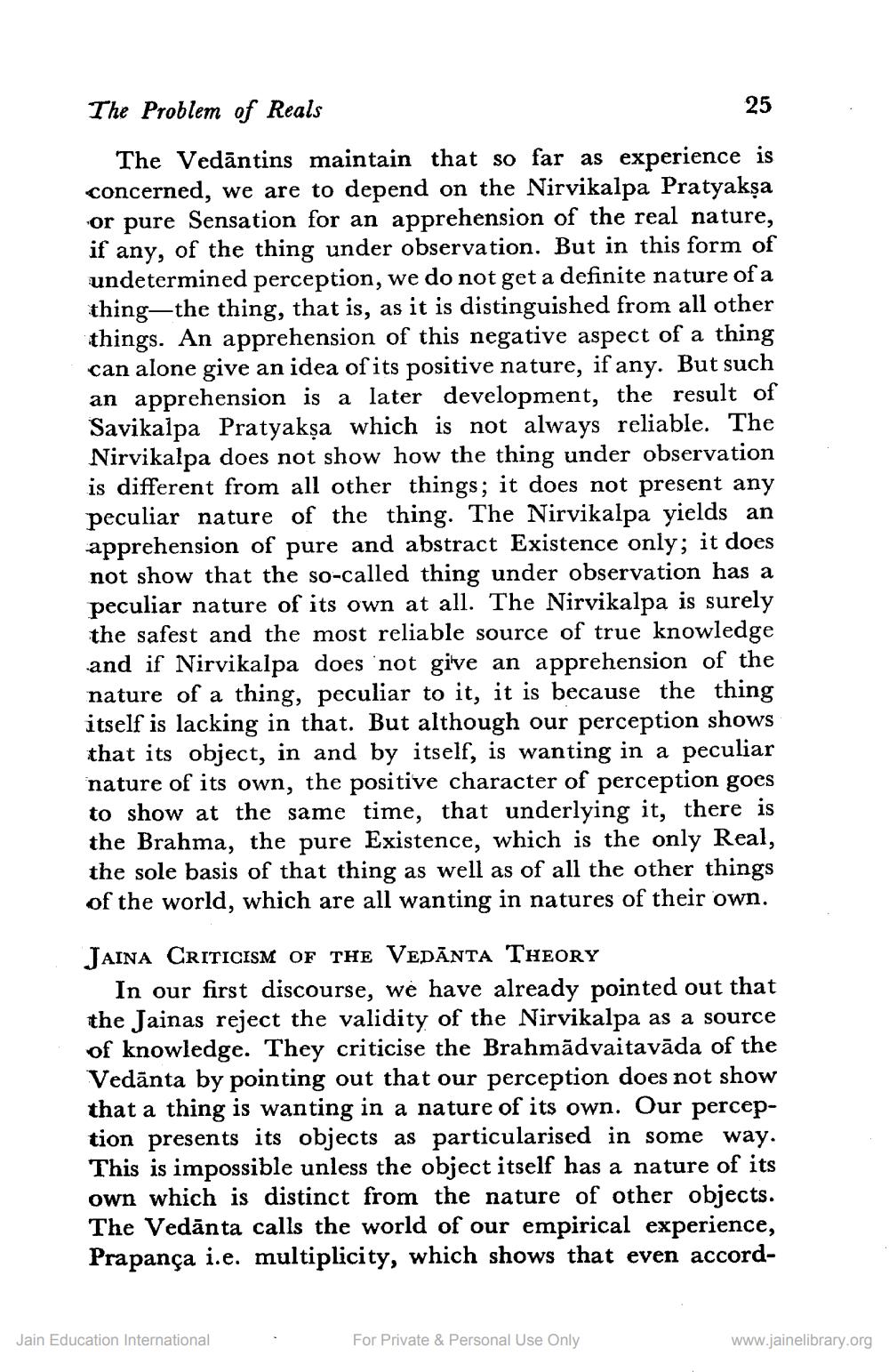________________
The Problem of Reals
25 The Vedāntins maintain that so far as experience is concerned, we are to depend on the Nirvikalpa Pratyakşa or pure Sensation for an apprehension of the real nature, if any, of the thing under observation. But in this form of undetermined perception, we do not get a definite nature of a thing—the thing, that is, as it is distinguished from all other things. An apprehension of this negative aspect of a thing can alone give an idea of its positive nature, if any. But such an apprehension is a later development, the result of Savikalpa Pratyakṣa which is not always reliable. The Nirvikalpa does not show how the thing under observation is different from all other things; it does not present any peculiar nature of the thing. The Nirvikalpa yields an apprehension of pure and abstract Existence only; it does not show that the so-called thing under observation has a peculiar nature of its own at all. The Nirvikalpa is surely the safest and the most reliable source of true knowledge and if Nirvikalpa does not give an apprehension of the nature of a thing, peculiar to it, it is because the thing itself is lacking in that. But although our perception shows that its object, in and by itself, is wanting in a peculiar nature of its own, the positive character of perception goes to show at the same time, that underlying it, there is the Brahma, the pure Existence, which is the only Real, the sole basis of that thing as well as of all the other things of the world, which are all wanting in natures of their own.
JAINA CRITICISM OF THE VEDĀNTA THEORY
In our first discourse, we have already pointed out that the Jainas reject the validity of the Nirvikalpa as a source of knowledge. They criticise the Brahmādvaitavāda of the Vedānta by pointing out that our perception does not show that a thing is wanting in a nature of its own. Our perception presents its objects as particularised in some way. This is impossible unless the object itself has a nature of its own which is distinct from the nature of other objects. The Vedānta calls the world of our empirical experience, Prapança i.e. multiplicity, which shows that even accord
Jain Education International
For Private & Personal Use Only
www.jainelibrary.org




